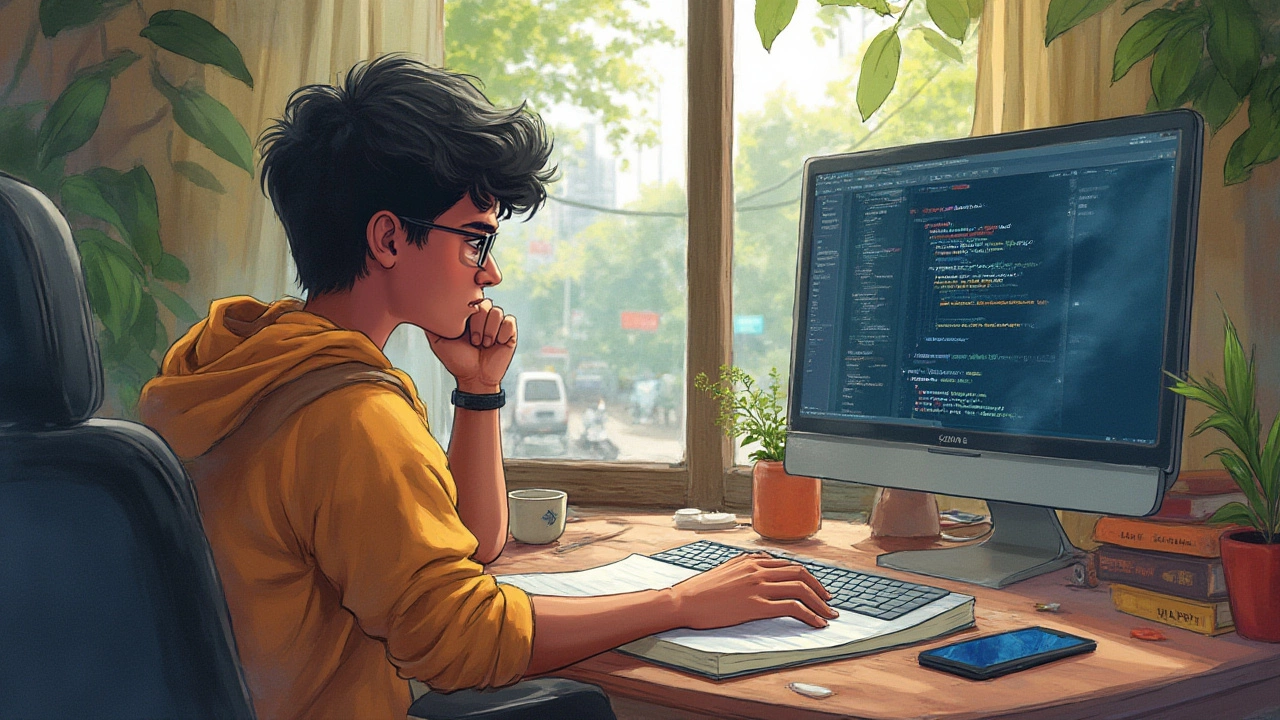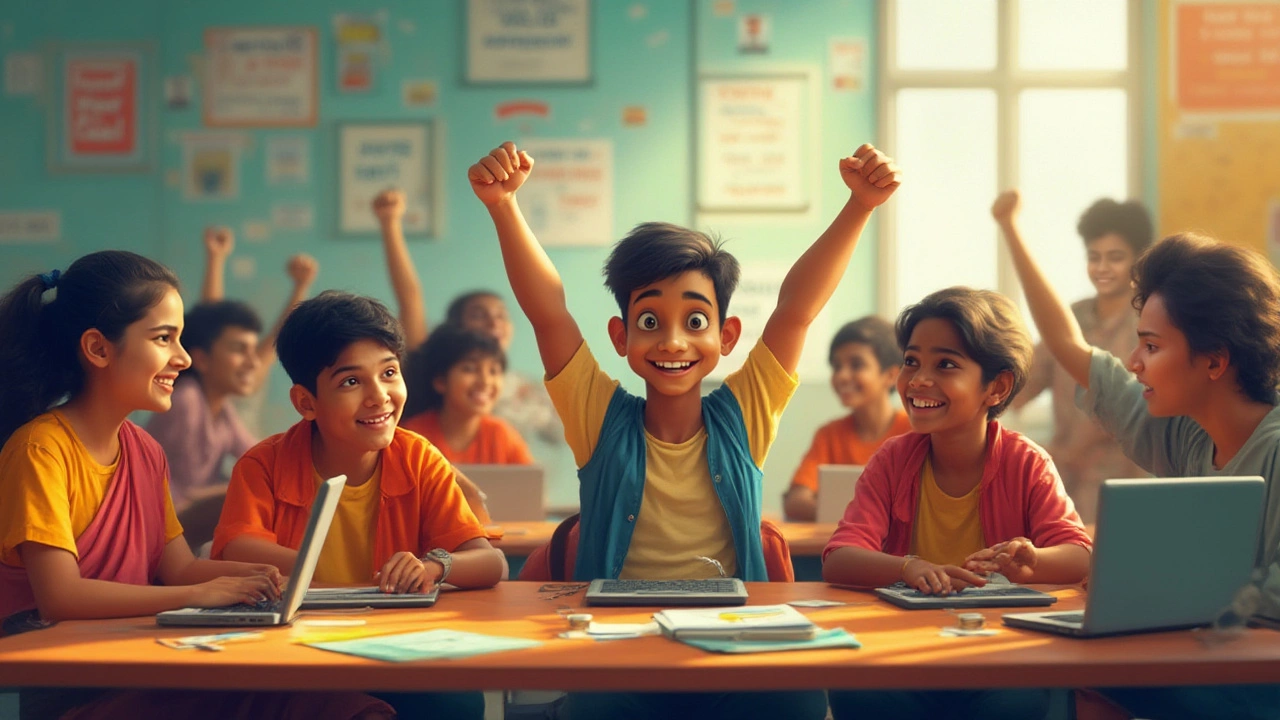Picking up coding might feel a bit like staring down a mountain. Every beginner asks the same big question: Which type of coding should I start with? Spoiler alert: There’s no one-size-fits-all answer, but there are clear favorites, common stumbling blocks, and some wild myths floating around. Here’s what nobody tells you before you pick your first language: the language you start with shapes the rest of your coding journey. It can make you fall in love with tech, or it could push you so far off you’ll never try again.
Why Your First Programming Language Matters
Think of your first coding language like your first bike. If you fall every two seconds, you’ll dread getting back on. If it’s smooth and the ride feels intuitive, you’ll be eager to explore. That’s why beginners probably shouldn’t jump headfirst into something cranky or unforgiving like C++ or Assembly. You want something that explains itself, gives you quick wins, and encourages you to tweak and tinker.
Here’s something most veteran programmers agree on: how you feel during your first weeks deciding which language to learn often sets the tone for your whole experience. Python is famous for getting newbies off the ground because its code is readable—sort of like telling a computer to do stuff in plain English. JavaScript, on the other hand, lets you immediately build things you can share on the internet. Then you’ve got visual block-based languages like Scratch—which is so approachable it’s taught in elementary schools (and it isn’t just for kids; it’s a fantastic launch ramp for visual thinkers and anyone nervous about text-based learning!).
Here’s an interesting tidbit: MIT’s introductory computer science course switched to Python as the starter language back in 2008, and not by chance. As Professor John Guttag said:
"We chose Python for its simplicity. When students can focus on ideas rather than curly braces, they tend to ‘get’ programming much faster."
But there’s a hidden catch—what you actually want to build shapes your best starting point. If you want to make websites, JavaScript is essential. Making games? Lua or even C# with Unity is perfect. Want to automate boring stuff or wrangle data? Python and R have you covered. The trick is to balance simplicity with the stuff you’re eager to create.
And here’s something wild: a beginner-friendly language isn’t always the most hyped. Sometimes you’ll find that „easy to start“ doesn’t mean „easy forever." But the comfort of learning in a nurturing environment can’t be overstated.
Breaking Down the Best Coding Languages for Beginners
Let’s get concrete and see what’s out there. Here’s a rundown of beginner-friendly languages—with real reasons why each might be the winner for you.
- Python: This is the king of beginner languages for a reason. The coding for beginners crowd loves it because you can write your first "Hello World" in a matter of seconds. Python’s syntax looks like regular sentences. It’s also the language you’ll see in data science, automation, and even simple game development.
- Scratch: Not text-based, but who cares? It lets you drag and drop code blocks, so you don’t need to worry about typing errors or cryptic syntax. Perfect for visual learners, kids, and honestly, anyone who wants to play before getting serious.
- JavaScript: If you’ve ever wanted to see your code running in a web page, this is your guy. It started out messy, but modern tools make it much easier to use. Great for anyone curious about websites, apps, or interactive design.
- Ruby: The Ruby on Rails movement made Ruby a big deal in web development. It’s clear, it’s fun to write, and it has a forgiving community willing to help.
- Lua: This one’s a hidden gem, especially for people interested in game development. Extremely lightweight, easy to read, and powers everything from Roblox to Angry Birds.
- HTML & CSS: These aren’t technically ‘true’ programming languages, but if you want to make websites, you’ll get instant satisfaction. They’re like building blocks for everything online.
That’s a lot to take in. Here’s a tip: you don’t have to pick one and stick with it forever. Your first language is for learning how code “thinks.” Later, switching languages gets easier, since most coding concepts—like loops, variables, and functions—work the same way everywhere.
Another fun fact: Survey data from Stack Overflow’s 2023 Developer Survey shows Python as the most desired language for new learners, right ahead of JavaScript. This combo basically runs the internet, startups, and research labs alike.
Busting a big myth here—"real programmers start with C." Nope, that’s old-school thinking. C teaches you discipline, but it’s brutally strict and expects you to manage every detail. Save that for round two, unless you’re truly up for a challenge.

How to Judge Which Language Is Right for You
Nobody’s expecting you to have it all figured out on day one. The right language depends a lot on your "why." Ask yourself: what do I actually want to build? If you have an end goal, reverse-engineer your decision from there.
Let’s say you want to automate everyday stuff—things like renaming tens of thousands of files, scraping price info online, or sending bulk emails. Python offers a giant library of tools to do just that—no extra hoops, tons of online guides, and big community support.
Now say you’re thinking about making interactive websites—stuff you see every day, like forms, sliders, and image galleries. JavaScript turns your code into live action, clickable magic in the browser. And the instant-gratification factor is huge. Try changing something in a JavaScript-powered webpage, and poof—you’ll see it the moment you save and refresh.
Here’s the twist—maybe you’re not sure yet. Maybe you just want to get a taste. Give Scratch a shot, or mess with Python. Both are super forgiving, ask little of your setup, and let you see results fast. You don’t need to install anything fancy; online sandboxes like repl.it or Scratch’s own web platform mean you can get started in your coffee break.
If you’re worried about job opportunities, Python and JavaScript are the golden tickets right now. Want crazy job security? Python leads the pack in AI, scientific research, automation, and “big data”—plus Google, Instagram, and Netflix use it behind the scenes. For web, it’s JavaScript or nothing; every site uses it, and there’s endless work keeping the internet running and beautiful.
Don’t sweat making the “perfect” choice. Studies about early programming education suggest the simpler you start, the more likely you are to stick with it when things get hard. So, ease in with a gentle curve. Your confidence will build with every success, no matter how tiny.
Here’s a snappy reality check: The best language is the one that keeps you coming back. If it feels like a puzzle you want to solve—or a tool you can bend to your will—you’re in the right place.
Tips for Getting Started Fast and Sticking With It
You’ve probably heard stories about people burning out in week one. It doesn’t have to be that way. There are a handful of tricks that make all the difference for folks picking up coding for the very first time.
- Pick one language and one resource to start. Shuffling between endless YouTube channels, books, and tutorials confuses everyone. Choose a clear path and stick to it until you’re comfortable.
- Find a project that excites you. It could be building a simple chatbot, automating your homework, or making a personal website. Having a "why" keeps you motivated through the rough spots.
- Schedule tiny daily coding sessions. It’s easier to do 10 minutes a day than binge 3 hours once a month. Burnout comes from overloading, not from steady progress.
- Join a community. Sites like Reddit’s r/learnprogramming, freeCodeCamp, or Real Python forums are packed with others at the same stage. You’ll find answers faster, support when you’re stuck, and maybe even a coding buddy.
- Don’t worry about memorizing; focus on understanding. Google is every coder’s best friend. The fastest learners are the ones who get comfortable searching errors, reading documentation, and tweaking code until something clicks.
- Celebrate tiny wins. Got your first script running? Tamed a nasty bug? Share it online, treat yourself to coffee, high-five your dog—just mark the milestone! Progress is about frequency, not flashy breakthroughs.
- Ignore imposter syndrome. Everyone feels lost at first—even the pros. You’ll have days when nothing makes sense. That’s the pay-in to learn any new skill, especially computer programming.
A famous quote from programmer and writer Zed Shaw nails it:
“You learn to code by writing code. There’s no other way.”Start small. Break stuff on purpose. Ask questions when stuck, and always remember—your journey is yours alone. No race here.
So don’t let the crowd noise freak you out. Pick a language that matches your goals, start simple, and build up confidence one line at a time. A year from now, you’ll look back—and that first choice won’t seem so mysterious anymore.

